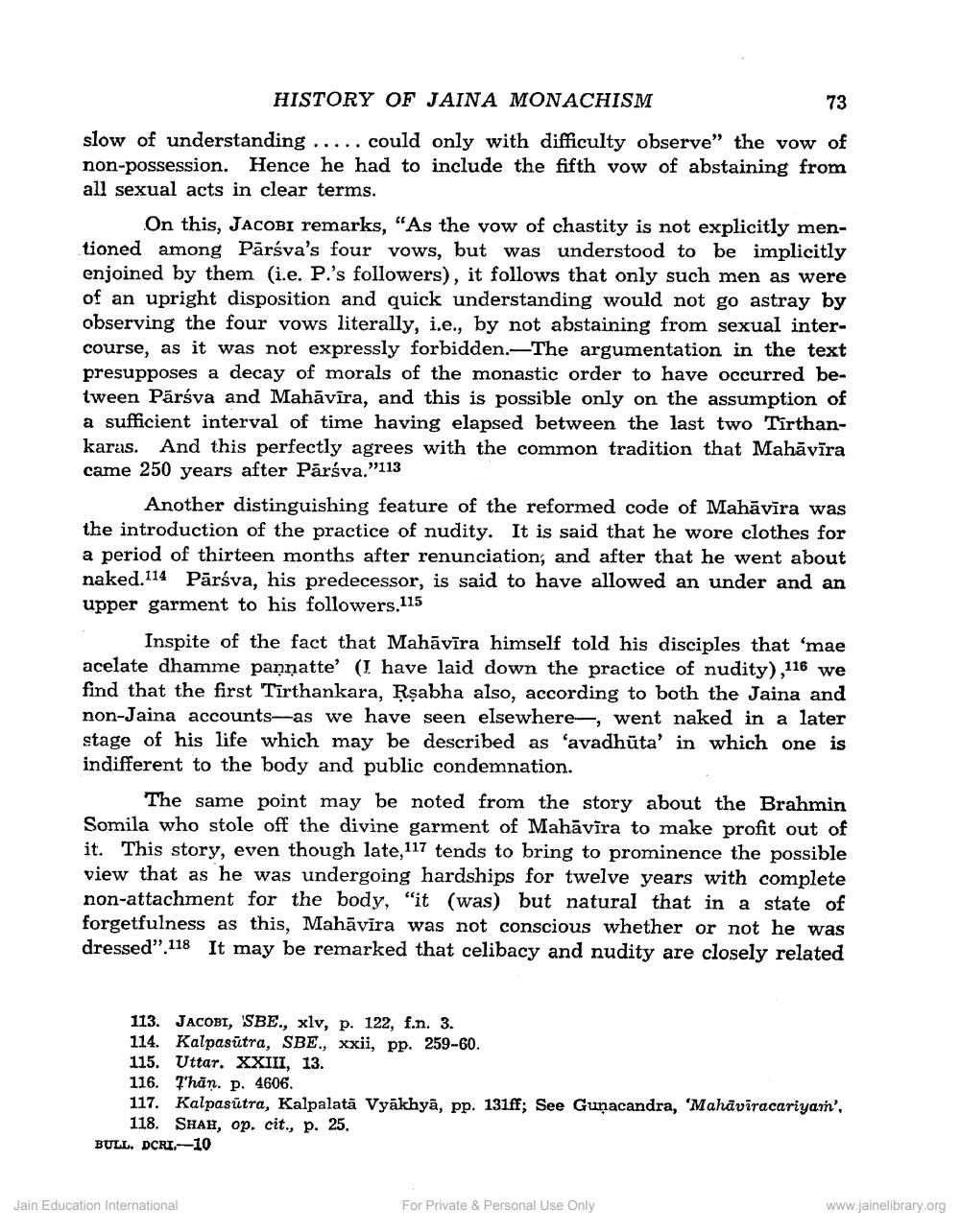________________
HISTORY OF JAINA MONACHISM
slow of understanding ..... could only with difficulty observe" the vow of non-possession. Hence he had to include the fifth vow of abstaining from all sexual acts in clear terms.
On this, JACOBI remarks, "As the vow of chastity is not explicitly mentioned among Pārsva's four vows, but was understood to be implicitly enjoined by them (i.e. P.'s followers), it follows that only such men as were of an upright disposition and quick understanding would not go astray by observing the four vows literally, i.e., by not abstaining from sexual intercourse, as it was not expressly forbidden.—The argumentation in the text presupposes a decay of morals of the monastic order to have occurred between Pārśva and Mahāvīra, and this is possible only on the assumption of a sufficient interval of time having elapsed between the last two Tirthankaras. And this perfectly agrees with the common tradition that Mahāvīra came 250 years after Pārsva."113
Another distinguishing feature of the reformed code of Mahāvīra was the introduction of the practice of nudity. It is said that he wore clothes for a period of thirteen months after renunciation, and after that he went about naked. 114 Pārsva, his predecessor, is said to have allowed an under and an upper garment to his followers.115
Inspite of the fact that Mahāvīra himself told his disciples that 'mae acelate dhamme pannatte' (I have laid down the practice of nudity),116 we find that the first Tīrthankara, Rşabha also, according to both the Jaina and non-Jaina accounts—as we have seen elsewhere, went naked in a later stage of his life which may be described as 'avadhūta' in which one is indifferent to the body and public condemnation.
The same point may be noted from the story about the Brahmin Somila who stole off the divine garment of Mahāvīra to make profit out of it. This story, even though late, 117 tends to bring to prominence the possible view that as he was undergoing hardships for twelve years with complete non-attachment for the body, "it (was) but natural that in a state of forgetfulness as this, Mahāvīra was not conscious whether or not he was dressed”.118 It may be remarked that celibacy and nudity are closely related
113. JACOBT, 'SBE., xlv, p. 122, f.n. 3. 114. Kalpasūtra, SBE., xxii, pp. 259-60. 115. Uttar. XXIII, 13. 116. Thăm. p. 4606. 117. Kalpasūtra, Kalpalata Vyākhyā, pp. 131ff; See Guņacandra, 'Mahaviracariyar',
118. SHAH, op. cit., p. 25. BULL, DCRI.--10
Jain Education International
For Private & Personal Use Only
www.jainelibrary.org




